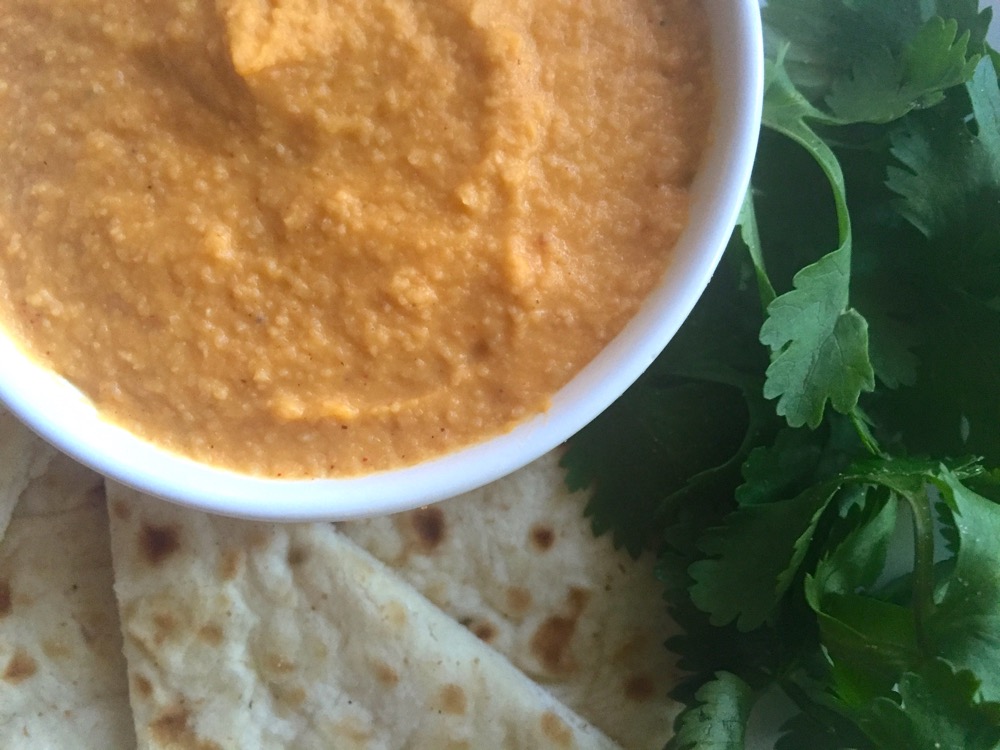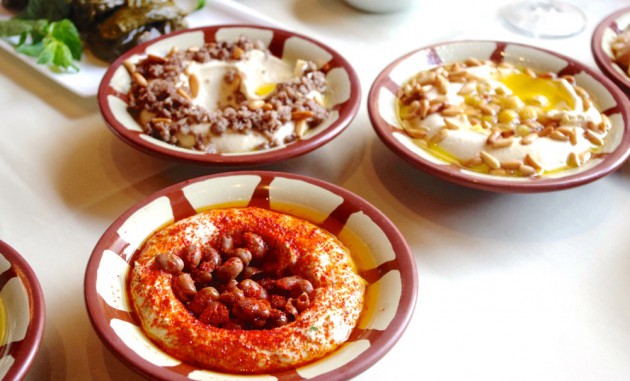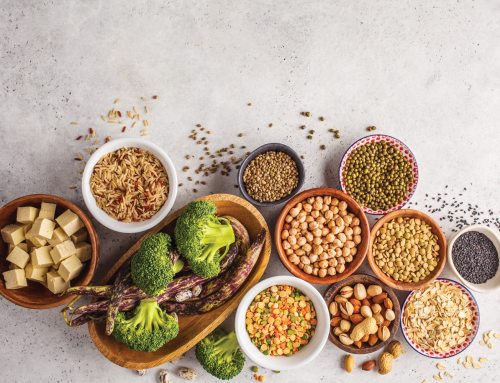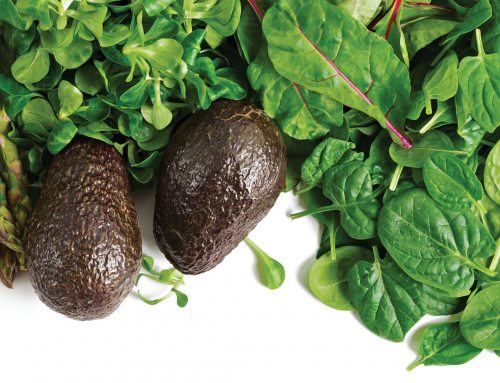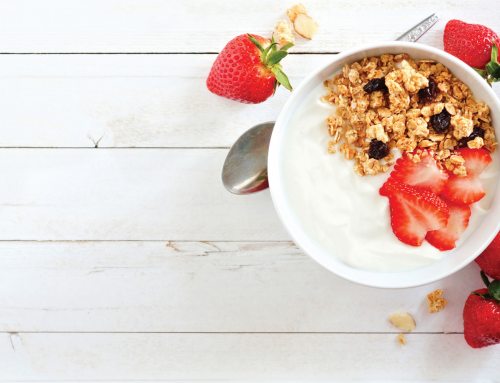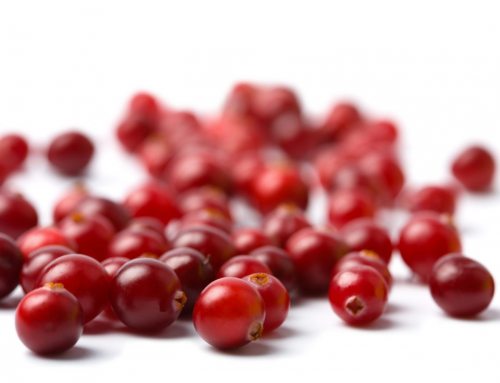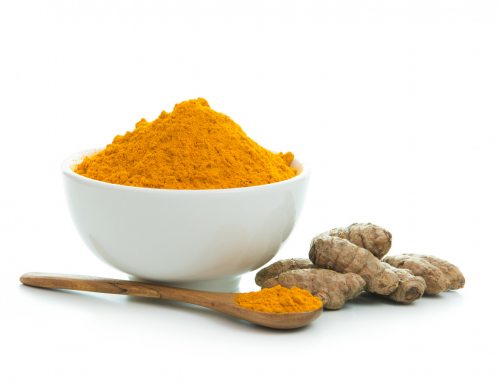By Brandon McDearis
Anyone that knows me well understands that I am a big fan of hummus. In fact, even people that do not know me very well can easily discern my love of the chickpea puree. If you follow the nutrition section of the magazine on a regular basis, you may realize that I have featured several hummus recipes over the years. I’m typically satisfied with just a simple, well-made, well-seasoned batch of regular hummus. In fact, I often prefer it not to be messed with at all. However, with that being said, there are endless opportunities to add both flavor and nutrition to a simple dip like hummus, and often the final product can yield an impressive outcome.
I have come across a number of recipes for sweet potato hummus over the years, but I had yet to try one myself until just recently. Sweet potatoes are often ranked as one of the healthiest foods on the planet by various publications, so adding them to this already nourishing dip is a nice nutritional dividend. In addition to enhancing the hummus with a number of nutrients such as beta-carotene, vitamin C and several B-vitamins, the sweet potato also offers the dip a subtle addition in flavor and consistency. I like the Southwest twist on this recipe using lime juice rather than lemon juice and adding the spice from the smoked paprika and Sirracha. However, the opportunities for variation and experimentation are pretty endless.
The final result with this recipe produces a delicious puree with a nice contrast of flavors containing complex carbohydrates that are easy on the blood sugar and a great source of protein and fiber. It can be eaten as a dip with crackers and vegetables, or it can be used as a spread for bagels or sandwiches. The recipe makes about 8 half-cup servings.
Ingredients:
- 1 sweet potato, baked
- 5 cloves garlic, peeled
- ¼ cup olive oil
- 2 cups chickpeas/garbanzo beans
- juice from 2 limes
- 2 tablespoons tahini (sesame paste)
- ¼ cup water or liquid from chickpeas
- 1 teaspoon salt
- ½ teaspoon black pepper
- ½ teaspoon cumin
- ½ teaspoon smoked paprika
- ½ teaspoon Sirracha
- 1 tablespoon cilantro (optional)
Preparation:
- Pre-heat oven to 400 degrees.
- Pierce sweet potato several times with a fork. Place on a baking sheet. Toss garlic in 1 tablespoon of olive oil and pour onto the same baking sheet. Place in the oven for 10 minutes.
- Remove garlic from the oven once it is beginning to soften and/or just starting to lightly brown and put inside the food processor. Continue baking sweet potato for another 25-30 minutes.
- Remove the sweet potato when it is soft and cooked all the way through (easily able to mash). Cooking time will very depending on the oven and the size of the potato. Allow potato to cool at room temperature or in the refrigerator for at least 10-15 minutes. Remove the peel and add to the food processor.
- Dump all other ingredients in the food processor except for the cilantro and the remaining olive oil.
- Pulse the ingredients in the food processor a number of times and run continuously while dripping the oil through the top in a constant steady stream. Stop to scrape down the sides and stir a bit if needed. Continue blending until smooth.
- Adjust seasoning as needed and serve in a bowl with anything of your preference.
Nutrition Facts:
Calories: 265 / Fat: 8g / Saturated Fat: 1g / Carbohydrates: 38g / Fiber: 9g / Protein: 9g
# # #
Brandon McDearis is the owner of Your Way Cuisine, www.yourwaycuisine.com, a personal chef and nutrition consulting business. He is also a professional wanderer that spends much of his year trotting the globe and working in places such as Alaska, Australia, and Antarctica.
Make Hummus Not War
Hummus is thought by many to be one of the oldest known prepared foods in the world. In addition, many regions claim to be the “birthplace” of hummus, resulting in at times intense national discussions. Debates over its origin even sparked a group of Lebanese businessmen to plan to sue Israel for “acting as if it had proprietary rights” over the dish. Not only did this motion spark a “hummus war” in the Middle East in 2008, it lead filmmaker Trevor Graham to create a movie about it titled, “Make Hummus Not War”. The movie is Graham’s journey though the hummus bars and kitchens of, Beirut, Tel Aviv, Jerusalem, and New York and raises the question, “could a regional love of hummus be the recipe for peace in the Middle East?” Hummus has been around for so long, and in so many different variations, however, that the exact origin is lost in antiquity. You can learn more about the movie at http://www.makehummusnotwar.com.


